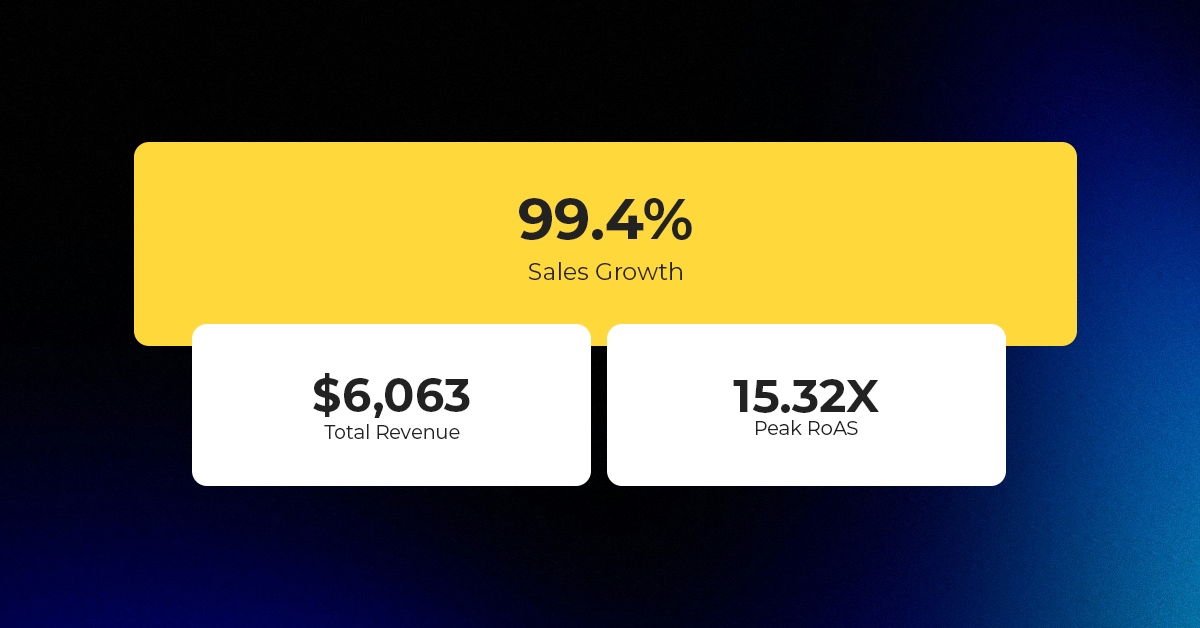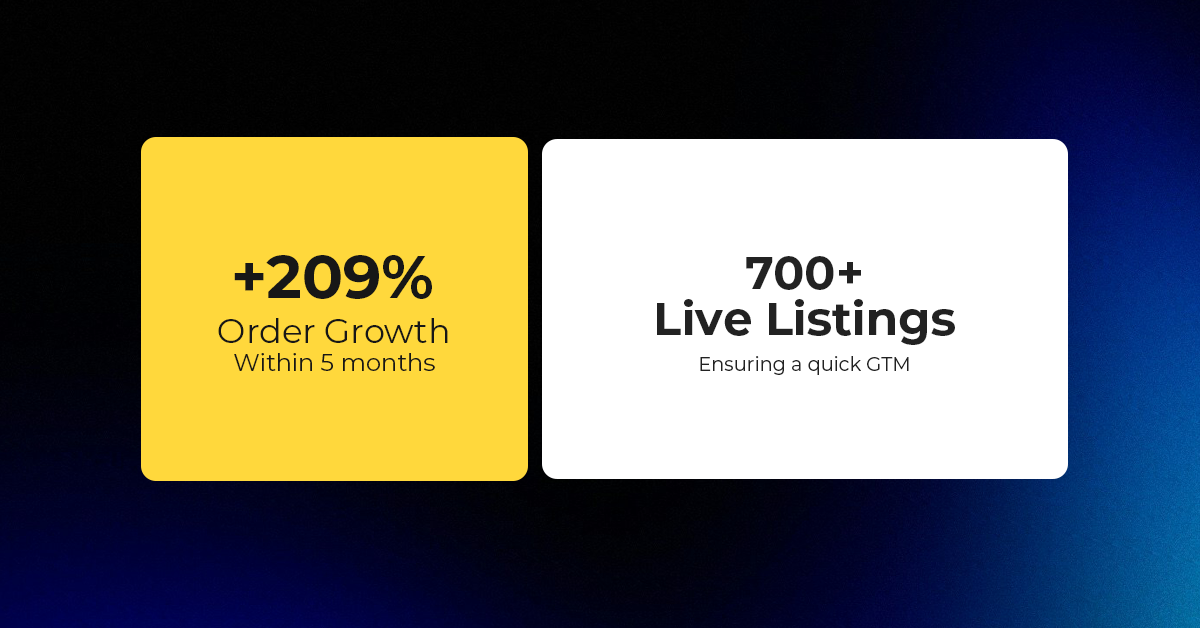TikTok Shop Raises Seller Fees Across Europe as Platform Pushes for ‘Content-Driven Commerce’ Expansion
Reading Time: 3 minutesTikTok Shop is raising its sales commission for merchants across five active…
Social media integration is more than just a buzzword in the eCommerce industry. It is a game-changing tactic for businesses looking to boost sales and customer engagement. Social media platforms like Facebook, Instagram, Twitter, and LinkedIn have millions of active users, and integrating them with eCommerce platforms can help businesses reach a wider audience, build brand awareness, and boost their bottom lines.
The importance of integrating social media into eCommerce strategies cannot be overemphasized. Social media has transformed the online shopping experience, and customers now anticipate a personalized and seamless experience.
In this blog, we will explore the power of social media integration in eCommerce and provide actionable tips for businesses to make the most of it. We will delve into why social media integration is critical for eCommerce success and examine the best practices for social media integration in eCommerce.
Social commerce is on the rise in the United States, with an expected 108 million social buyers by 2023. According to eMarketer, social commerce sales are predicted to reach $1.298 billion by the same year.
Although the US has made significant progress in social commerce, it still lags behind China, which was predicted to hit the $350 billion mark by 2021. However, China’s social commerce value exceeded expectations, reaching over $360 billion in 2022.
It’s clear that social commerce is rapidly expanding globally, and businesses need to take advantage of this trend to remain competitive. By integrating social media into their eCommerce strategies, businesses can improve their reach, engagement, and sales. With the right tactics, social media integration can drive a significant increase in revenue and customer loyalty.
Social media’s impact on consumer behavior is massive. Businesses that fail to leverage it risk losing out on potential customers. Here are some compelling reasons why social media integration is critical for eCommerce success:
Social media has become an essential tool for businesses looking to drive traffic to their eCommerce websites. With billions of active users on social media platforms, integrating your eCommerce website with social media can open up a whole new world of potential customers. By sharing links to your products on social media, you can attract potential customers who may not have otherwise discovered your products.
Consider this: Over 90% of people who use social media platforms follow at least one brand or business. This means that social media platforms provide an incredible opportunity for businesses to reach out to their target audience, engage with them, and drive traffic to their eCommerce websites.
By integrating social media into their eCommerce strategies, businesses can unlock the power of customer engagement and create a unique shopping experience that drives sales. Social media provides businesses with a platform to interact with customers more personalized and interactively, allowing them to offer tailored product recommendations, provide real-time customer support, and offer exclusive deals and promotions to their followers.
In fact, studies have shown that businesses with a strong social media presence are more likely to attract and retain customers. According to a recent report, over 70% of consumers are more likely to make a purchase from a business that they follow on social media. This highlights the importance of social media integration in eCommerce and the potential it holds for businesses looking to stay ahead of the competition.
When businesses share content that resonates with their target audience, they can increase their visibility on social media and attract new followers who may not have been aware of their brand before. In fact, studies show that social media integration can increase a business’s reach by up to 67%.
But it’s not just about reaching a wider audience. Social media integration can also help businesses build stronger relationships with their existing customers. Businesses can foster a sense of community and loyalty by engaging with customers on social media and providing them with valuable content.
Not only does it provide a direct line of communication with customers, but it can also foster stronger relationships and improve customer loyalty. This can be achieved by quickly responding to customer inquiries and feedback on social media. In fact, a recent study found that businesses who respond to customer inquiries on social media within an hour are 7 times more likely to retain customers.
Many businesses have already realized the potential of social media integration in eCommerce and have achieved significant success as a result. Let’s take a look at a few case studies:
Kylie Cosmetics has become a huge sensation in the beauty industry, and social media played a crucial role in its success. The brand’s founder, Kylie Jenner, has a staggering 25.6 million followers on Instagram alone. She knows how to use social media to her advantage by frequently promoting her products on the platform. Thanks to this strategy, Kylie Cosmetics has amassed a massive following and generated millions of dollars in revenue.
Warby Parker, a renowned eyewear brand, has ingeniously incorporated social media to enhance its customer experience. The brand’s revolutionary app enables customers to try on glasses virtually, ensuring an unforgettable experience.
Moreover, Warby Parker stimulates customers to share photos of themselves wearing their glasses on social media. This strategic move enables Warby Parker to leverage user-generated content to build a strong community of loyal customers who are passionate about the brand.
Glossier is a beauty brand that has revolutionized the way social media can be leveraged in eCommerce. In fact, Glossier’s business model is solely based on social media. The brand has harnessed the power of social media to crowdsource product ideas, and it encourages its customers to share photos and reviews of its products on various social media platforms.
This approach has not only helped Glossier build a loyal community of fans, but it has also translated into massive success for the brand. By using social media to engage with its audience, Glossier has generated a cult-like following, which is a testament to the power of social media integration in eCommerce.
Social media integration in eCommerce can be a game-changer for businesses if done right. Here’s how you should do it
When it comes to social media marketing, it’s important to remember that not all platforms are created equal. Each platform has its own unique strengths and weaknesses that businesses need to consider when choosing which ones to use for their marketing efforts.
For instance, if you’re targeting CXOs, LinkedIn might be the best platform for you to focus on instead of Instagram. On the other hand, if your target audience is primarily young people or consumers who are interested in visual content, Instagram might be a better platform for you to focus on.
Social media has revolutionized the way businesses interact with their audience. Businesses must create shareable content that resonates with their target market to extract the best out of any social platform.
The content must be visually appealing, informative, and relevant, whether it’s a blog post, image, video, infographic, or something else. To amplify the reach of your content, use appropriate hashtags that your audience is likely to use. And, of course, ensure that your content is easy to share across all social media platforms.
One way to do this is by using visual content that captures the audience’s attention. Additionally, did you know that posts with images receive 2.3 times more engagement than those without? Creating infographics, videos, or images to accompany your text can be a great way to keep your audience interested and engaged.
In order to engage with your audience on social media, businesses should actively participate in two-way conversations. This includes answering their questions, addressing their concerns, and responding to comments and direct messages promptly. Utilizing social media monitoring tools is also a smart way to stay on top of what customers are saying about your brand online.
By establishing an active presence on social media, businesses can build trust and loyalty with their customers. Customers who feel connected to your brand are more likely to become repeat customers and recommend your products or services to others.
To fully grasp the potential of social media integration for eCommerce success, businesses must measure their return on investment and make use of social media analytics. Social media analytics provides invaluable insights into website traffic, conversion rates, engagement metrics, and more. By leveraging this data, businesses can gain a deep understanding of their social media strategy’s effectiveness and make informed decisions to optimize their approach.
It’s important to note that tracking the success of social media integration isn’t a one-size-fits-all approach. Considering business goals and target audiences, different metrics will hold varying levels of importance. For example, a business targeting a younger demographic may focus on engagement metrics such as likes and shares, while a business looking to increase sales may prioritize conversion rates.
While social media integration can be beneficial, there are also some common pitfalls that businesses should avoid. These include:
By avoiding these common pitfalls, businesses can ensure that their social media integration strategy is effective and successful.
Social media’s impact on eCommerce is constantly evolving, and keeping up with the latest trends is key to staying ahead. Here are some of the most intriguing trends and predictions for the future of social media integration in eCommerce
Advancements in AI and machine learning have revolutionized the way businesses can create personalized shopping experiences for customers. By leveraging social media data, businesses can better understand their customers’ interests and preferences, allowing them to recommend products or create targeted ads that are tailored to each individual’s needs. These personalized shopping experiences improve customer satisfaction and loyalty and increase the likelihood of repeat business.
Social commerce is rapidly becoming a new phenomenon in the world of e-commerce. It’s all about using social media platforms as a sales channel. With the increasing number of consumers turning to social media for product research and recommendations, businesses are realizing the potential of social commerce as a lucrative sales channel.
As eCommerce continues to evolve, one critical element businesses must consider social proof. This powerful concept suggests that people are more likely to purchase a product or service if they see others doing the same. With social media platforms rapidly integrating with eCommerce, it’s more crucial than ever for businesses to build social proof by leveraging user-generated content, reviews, and other social media engagement tactics.
In recent years, influencer marketing has taken the eCommerce industry by storm, providing businesses with an effective way to increase brand awareness and tap into new audiences through social media. With social media platforms continuing to dominate the digital landscape, influencer marketing is expected to remain an important strategy for businesses looking to boost their online presence.
In fact, as per a recent survey, businesses that implemented influencer marketing strategies saw an average of $6.50 in earned media value for every $1 spent.
Social media integration is crucial for the success of any eCommerce business. In fact, it has become an essential element that can significantly impact a business’s growth and revenue. With the right strategies and tools, businesses can leverage social media’s power to drive traffic, increase customer engagement, and boost sales.
Therefore, In today’s fiercely competitive market, not utilizing social media integration means missing out on a significant opportunity to connect with potential customers and drive sales. By following the strategies outlined in this blog, businesses can stay ahead of the competition.
Above all, at CedCommerce, we understand the importance of social media integration for eCommerce success. That’s why we provide powerful integration solutions that allow businesses to seamlessly connect their online stores to popular social media platforms and maximize their reach.
So if you’re an eCommerce business owner looking to increase your online presence and boost your sales, don’t miss out on the opportunity to leverage the power of social media. Click here to learn more about CedCommerce’s integration solutions and take your eCommerce business to the next level.

Reading Time: 3 minutesTikTok Shop is raising its sales commission for merchants across five active…

Reading Time: 11 minutesBy now you have seen your BFCM 2025 numbers. The harder question…

Reading Time: 3 minutesAbout the Brand Name: Vanity Slabs Inc Industry: Trading Slabs- Vanity Slabs…

Reading Time: 2 minutesAbout the Brand Name: Ramjet.com Industry: Automotive Parts & Accessories Location: United…

Reading Time: 2 minutesAmazon is rolling out strategic referral fee reductions across five major European…

Reading Time: 4 minutesQuick Summary: Scaling Lifestyle Powersports on eBay with CedCommerce Challenge: Zero marketplace…

Reading Time: 4 minutesTikTok has surpassed 460 million users across Southeast Asia, reinforcing its position…

Reading Time: 3 minuteseBay has released its final seller news update for 2025, with a…

Reading Time: 3 minutesAmazon has clarified its stance regarding speculation around a potential breakup between…

Reading Time: 4 minutesWalmart is accelerating its push into next-generation fulfillment by expanding its drone…

Reading Time: 4 minutesFaire, the fast-growing wholesale marketplace connecting independent retailers with emerging brands, has…

Reading Time: 4 minutesB2B buying in the United States is undergoing a fundamental behavioral shift…

Reading Time: 3 minutesSummary Cyber Monday 2025 has officially become the largest online shopping day…

Reading Time: 2 minutesSummary Amazon kicked off December with two major developments shaping the future…

Reading Time: 2 minutesSummary Walmart has entered December with two major moves that signal a…

Reading Time: 2 minutesBlack Friday 2025 delivered the strongest U.S. eCommerce performance in history, as…

Reading Time: 13 minutesStill approaching BFCM with generic discounts, last-minute price cuts, or scattered promotions?…

Reading Time: 3 minutesTikTok Shop reached a major milestone during its largest U.S. “Global Black…

Reading Time: 4 minutesOpenAI has announced a new AI-powered shopping research tool designed to help…

Reading Time: 9 minutesIf your TikTok Shop listings often sit in review or your visibility…